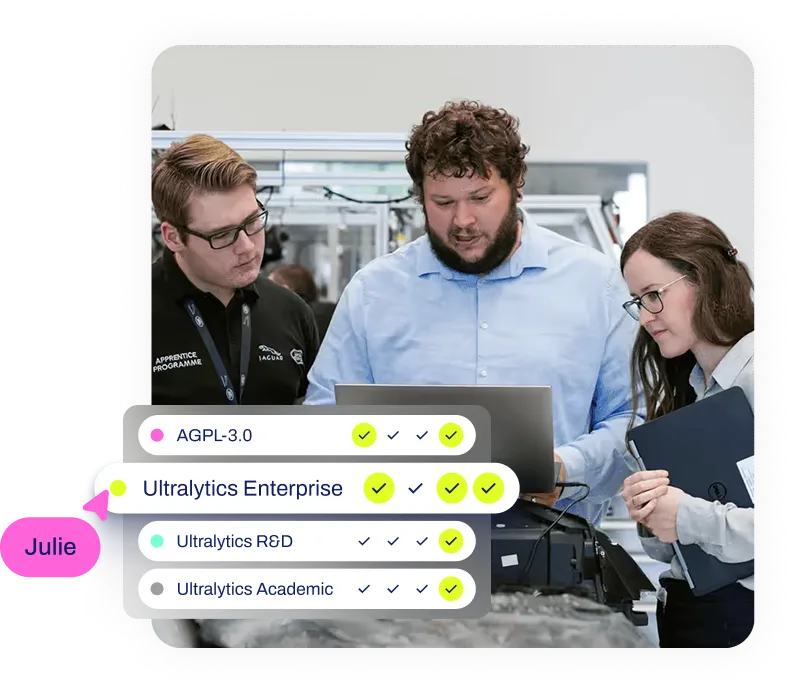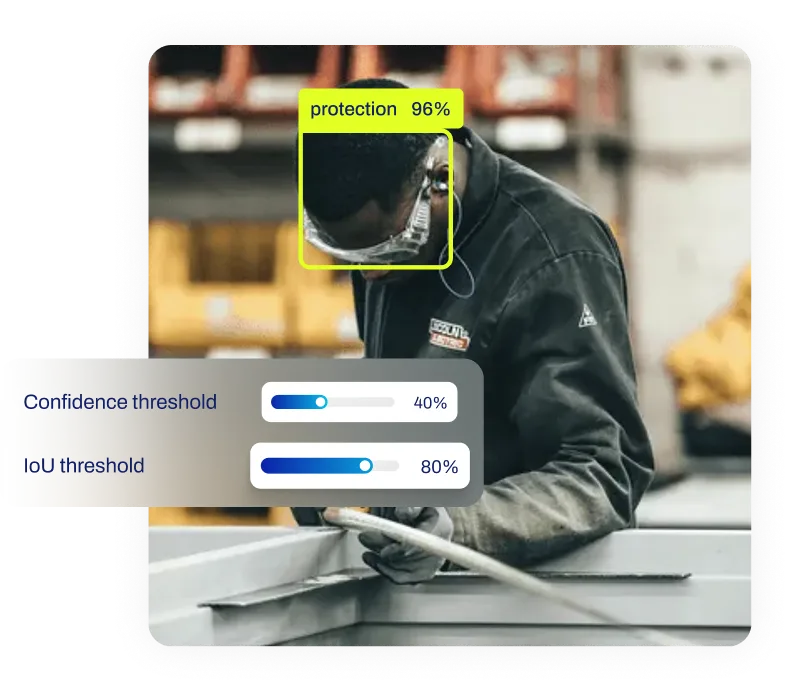Machine Learning Operations (MLOps)
Explore MLOps essentials for streamlining AI deployment. Learn how to manage CI/CD, data versioning, and monitoring with Ultralytics YOLO26 and our Platform.
Machine Learning Operations (MLOps) is a set of practices, principles, and technologies that streamlines the process
of taking machine learning (ML) models from
experimental development to reliable production deployment. By combining the exploratory nature of data science with
the rigorous discipline of DevOps, MLOps aims to unify the release cycle for
Artificial Intelligence (AI)
applications. While traditional software development focuses primarily on code versioning, MLOps introduces the
additional complexities of managing large-scale data and evolving model behaviors. This holistic approach ensures that
AI systems remain scalable, accurate, and governed throughout their entire lifecycle.
The Pillars of MLOps
Successful MLOps implementations rely on bridging the gap between three distinct disciplines: data engineering,
machine learning, and DevOps.
-
Continuous Integration and Delivery (CI/CD): Just as standard software uses
CI/CD pipelines to automate testing and
deployment, MLOps pipelines automate model training and validation. This ensures that changes to the code or data
automatically trigger steps to verify
model performance before updates reach
production.
-
Data and Model Versioning: In traditional coding, you only version the source code. In MLOps, teams
must use tools like DVC (Data Version Control) to track changes in
training data alongside the model hyperparameters.
This guarantees
reproducibility,
allowing engineers to recreate any specific model version from history.
-
Continuous Monitoring: Once deployed, models can degrade due to
concept drift, where the statistical properties of the
target variable change over time. MLOps involves setting up
observability systems to track metrics like
inference latency and accuracy, automatically
alerting teams when retraining is necessary.
Real-World Applications
MLOps is the backbone of modern enterprise AI, enabling companies to scale from a single model to thousands of
deployed endpoints reliably.
-
Predictive Maintenance in Manufacturing: Factories use
computer vision to identify defects on
assembly lines. An MLOps pipeline ensures that as new product lines are introduced,
object detection models are retrained with new
images, versioned, and automatically deployed to factory edge devices without downtime. This ensures
quality inspection
remains consistent even as manufacturing conditions change.
-
Smart Retail Inventory: Retailers deploy cameras to track shelf stock. Because store lighting and
product packaging change frequently, model drift is a
constant risk. MLOps systems monitor
confidence scores; if confidence drops, the system
flags images for annotation and initiates a retraining cycle on the cloud, pushing an updated model to stores to
maintain automated inventory management.
Implementing MLOps with Ultralytics
A critical step in any MLOps workflow is
experiment tracking. This ensures that every
training run is logged with its specific configuration, allowing teams to reproduce results or rollback to previous
versions if necessary.
The following example demonstrates how to train a
YOLO26 model—the latest state-of-the-art model from
Ultralytics recommended for all new projects—while enabling project tracking. This naturally creates the artifacts
required for a production pipeline.
from ultralytics import YOLO
# Load the YOLO26 model (recommended for superior speed and accuracy)
model = YOLO("yolo26n.pt")
# Train the model while specifying project and name for organized logging
# This creates a structured directory of artifacts (weights, charts, args)
# which is essential for reproducibility in MLOps pipelines.
results = model.train(data="coco8.yaml", epochs=10, project="mlops_experiments", name="run_v1")
By organizing training runs into specific projects, teams can easily integrate tools like
MLflow or
TensorBoard to visualize performance metrics over
time. As organizations scale, they often migrate these workflows to the
Ultralytics Platform, which provides a unified interface for managing
datasets, training remotely, and deploying models to various formats like
TensorRT for optimized inference speed.
MLOps vs. Related Concepts
To implement these practices effectively, it is important to distinguish MLOps from related terms in the ecosystem.
-
MLOps vs. DevOps: DevOps focuses on the
continuous delivery of software applications. MLOps extends these principles by adding "Data" and
"Model" as first-class citizens. In DevOps, a code change triggers a build; in MLOps, a change in data
distributions or a drop in precision can also trigger a
new pipeline execution.
-
MLOps vs. Model Serving:
Model serving refers specifically to the
infrastructure used to host a model and process
inference requests. MLOps is the broader
umbrella that encompasses serving, but also includes the training, governance, and monitoring phases.
-
MLOps vs. AutoML:
Automated Machine Learning (AutoML)
focuses on automating the model creation process (e.g., selecting algorithms). MLOps manages the lifecycle of that
model after it has been created and operationalizes the pipeline that runs the AutoML tools.










.webp)